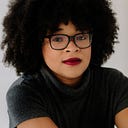Member-only story
Descendants of Tuskegee Syphilis Study Survivors Say It Was Nothing Like the Covid-19 Vaccine
They want to set the record straight on their fathers’ legacies and the ahistorical information
Though two Covid-19 vaccines have been approved for distribution, it’s been a touchy subject — and a fertile ground for conspiracy theories — about whether or not the vaccine is safe for Black people. One of the parallels that Black social media users have referred to is the Syphilis Study at Tuskegee University.
From 1932 to 1972, the United States Public Health Service (USPHS) began working at Tuskegee University to study syphilis. The study, which initially involved 600 Black men (399 with the disease and 201 without), was conducted without these men’s consent or having informed them of the purpose of said study. Instead, the researchers told the men that they had “bad blood,” which was a term used to describe ailments such as anemia, fatigue, and syphilis.
When an advisory panel realized what the USPHS had done, the study was stopped. Then, in 1973, study participants and their families filed a class-action lawsuit and were awarded $10 million in an out-of-court settlement the following year.

